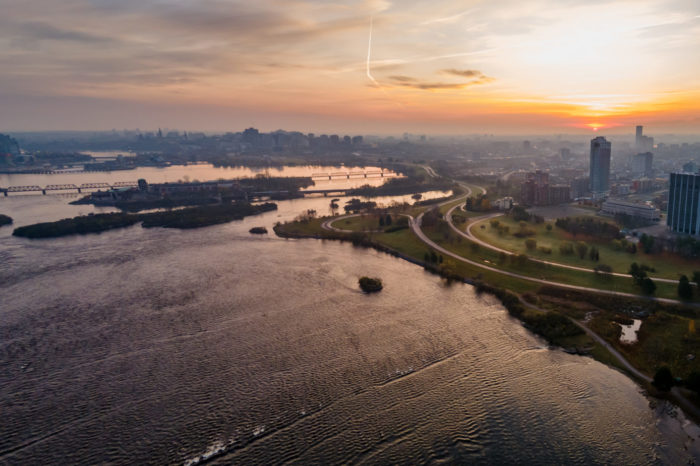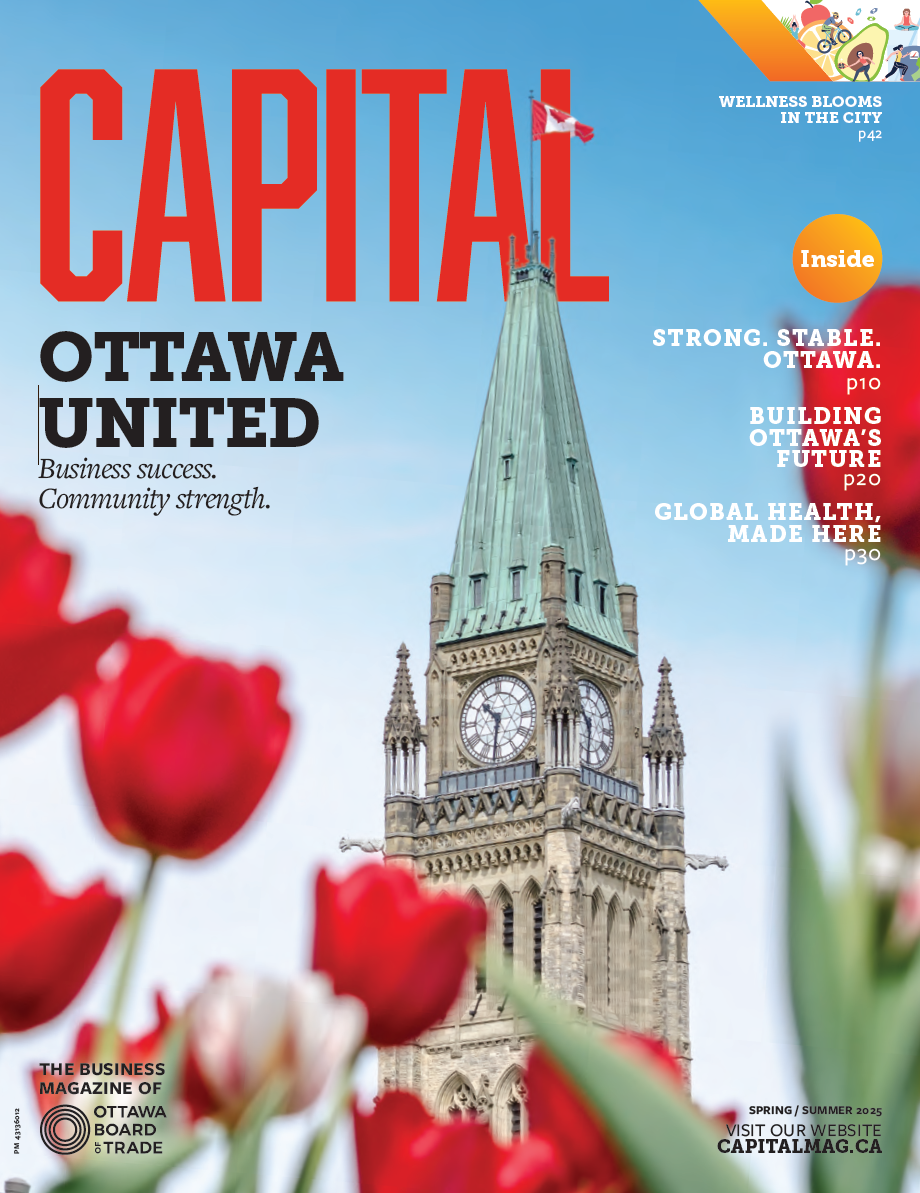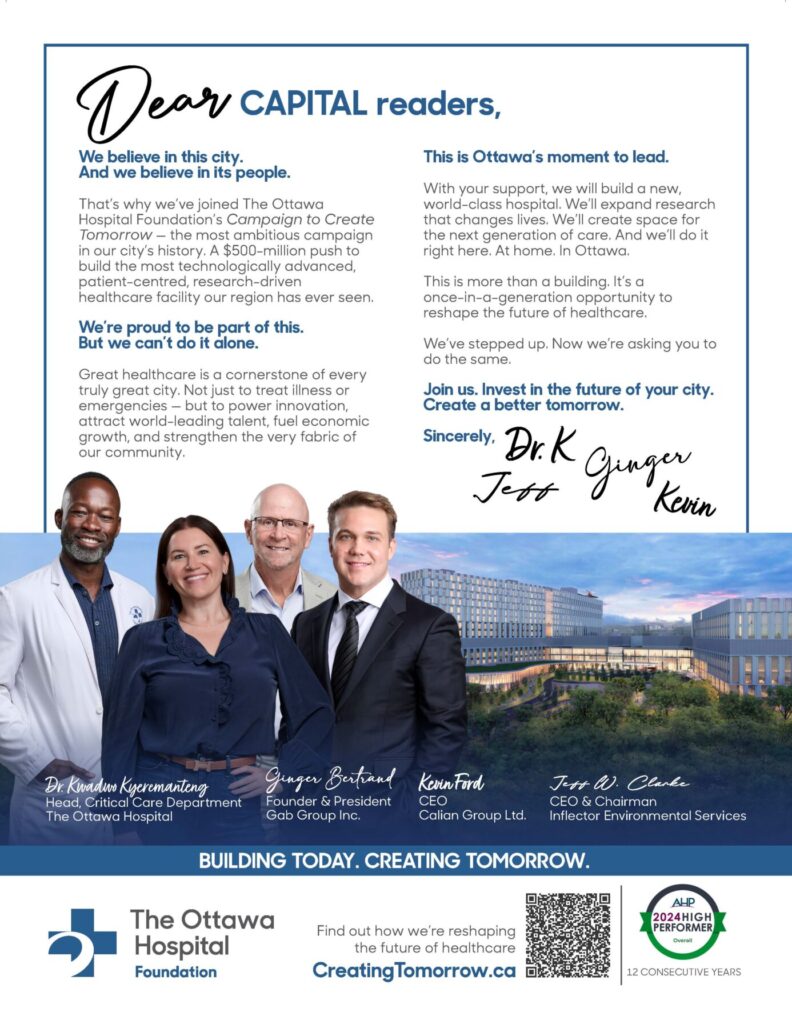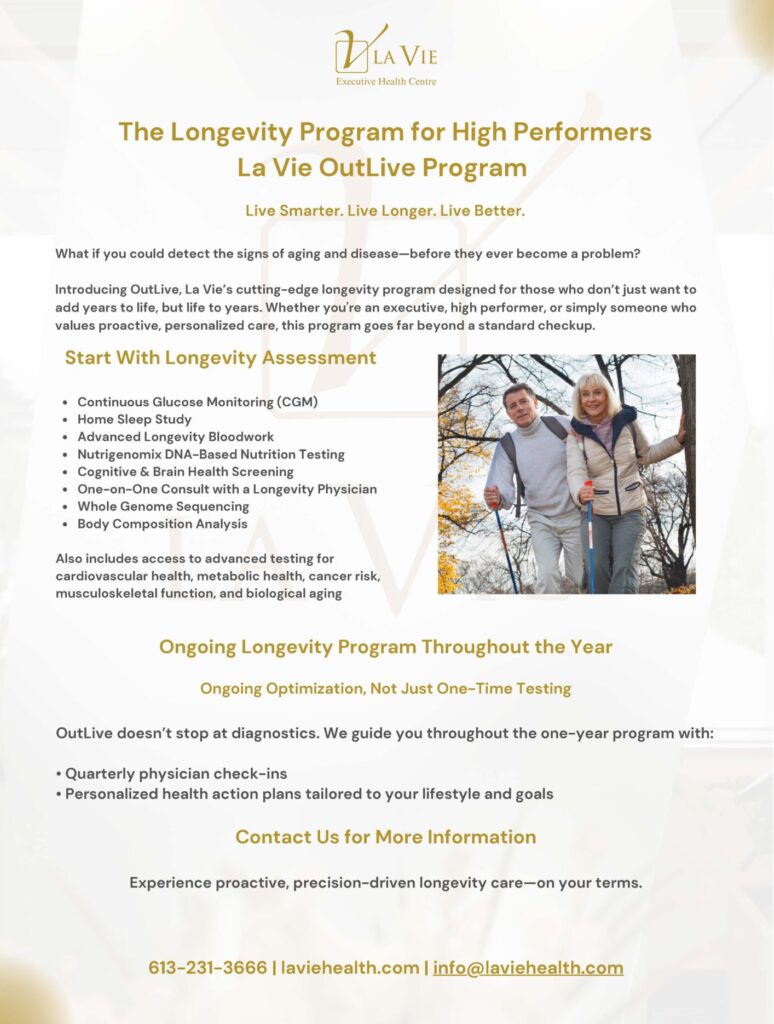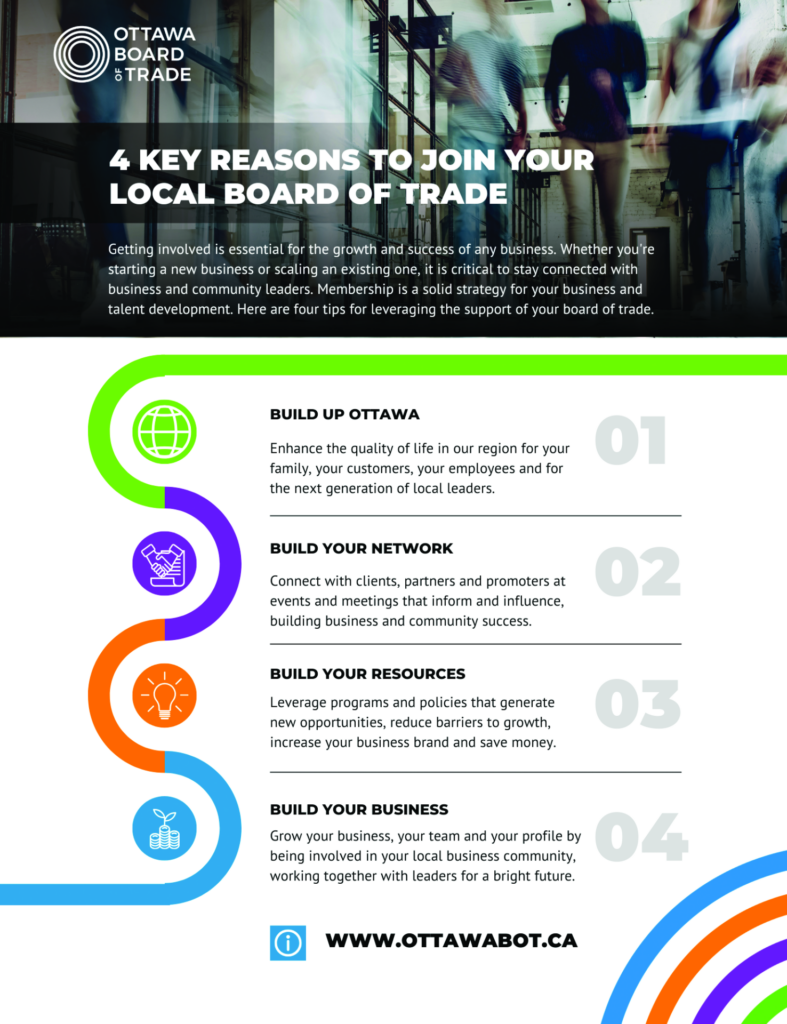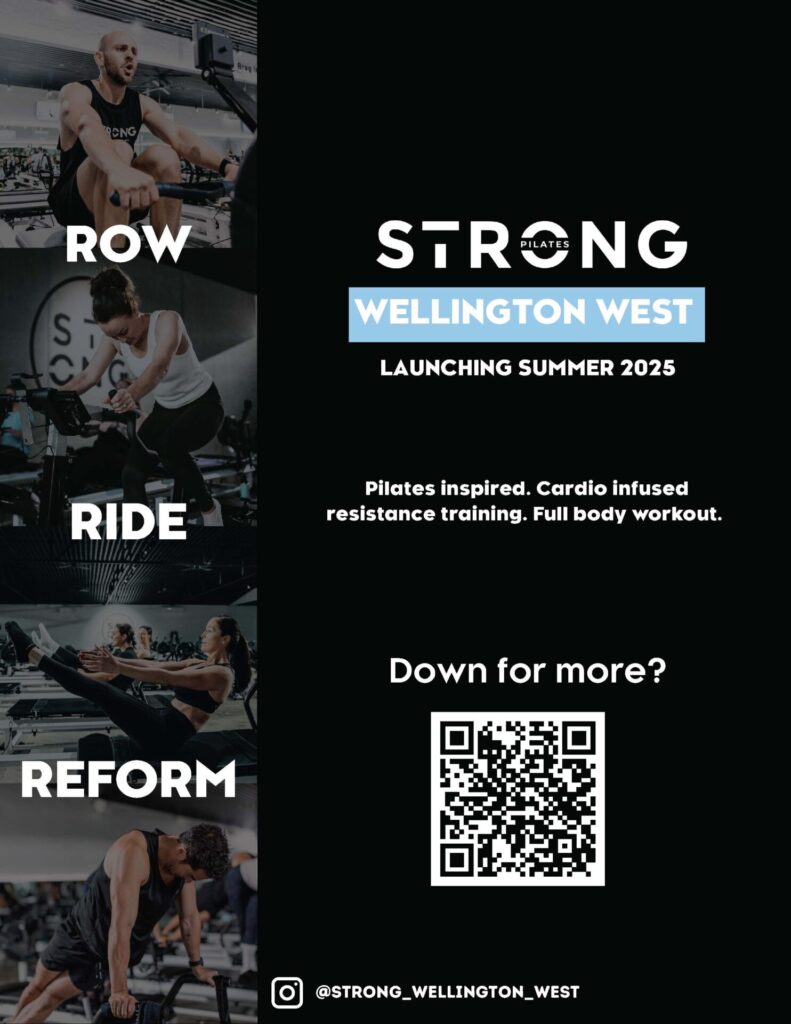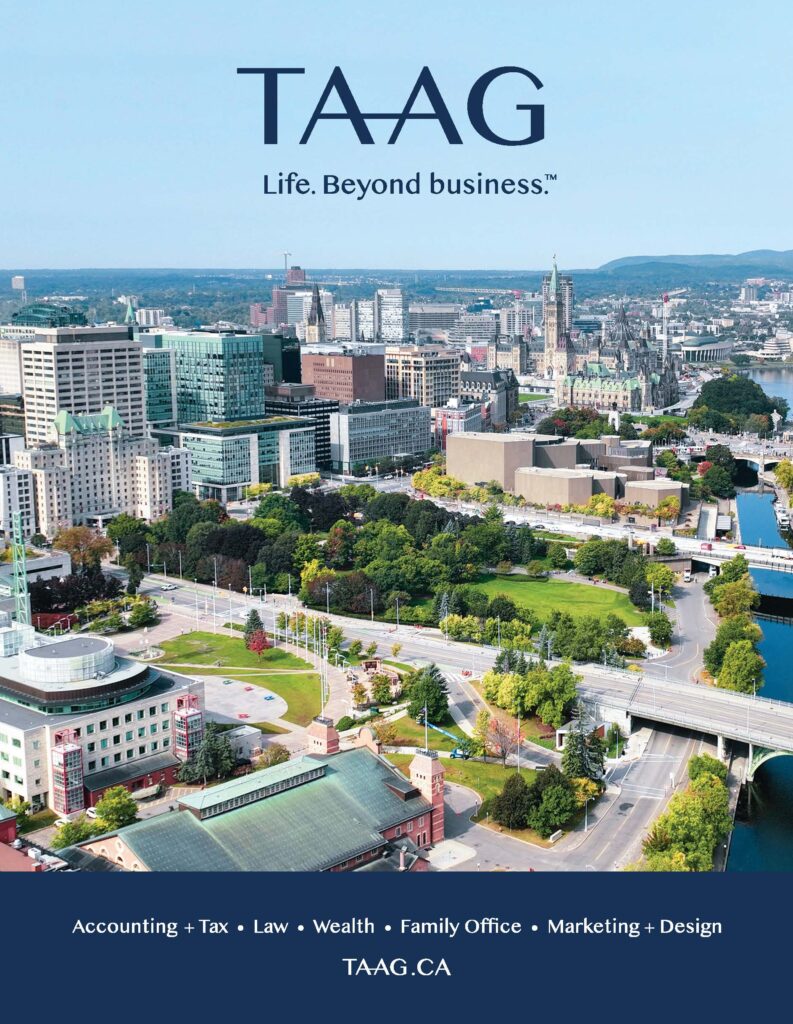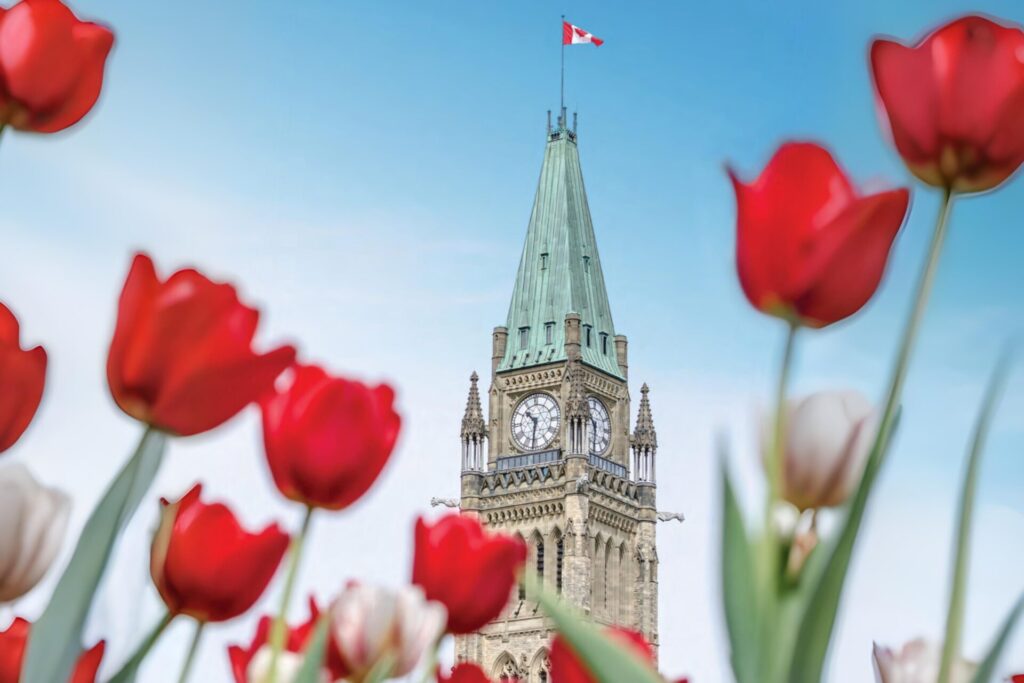C-Suite View: Ottawa’s Edge

Canada’s capital is a world-class city for numerous reasons, not least are its quality of life, thriving industry and top talent base.
BY JENNIFER CAMPBELL
When Sonya Shorey thinks about what makes a city world-class, she lists quality of life, thriving industry, a top talent base, good travel infrastructure and diversity and inclusion, to name just a few. And, when she thinks of Ottawa in that context, she thinks the city “punches far above its weight on many fronts.”
The vice-president of strategy, marketing and communications at Invest Ottawa notes that this capital has the top concentration of tech talent in North America at 11.6 per cent, more even that Silicon Valley, according to a CBRE’s 2021 report for North America, titled Scoring Tech Talent.
“We have what I would call Olympians in terms of deep, deep tech expertise in so many critical sectors and a lot of roots in the ICT sector that have branched off and are now enabling and accelerating growth in a host of other sectors, including some emerging ones such as those supported by Area X.O,” she says of Ottawa’s global innovation playground. “You can look at smart mobility, connectivity and autonomy. Those enabling technologies play a role in all kinds of sectors — from aerospace, defence and space through to clean tech, intelligent transportation, life sciences, cybersecurity and smart cities. We have the opportunity to take a leadership role in helping to realize a vision for smart cities in the future.”
Ottawa also has strong post-secondary system that supports the country’s most educated workforce (61 per cent of the labour force hold a post-secondary degree) and it’s “very diverse and inclusive,” she says, pointing to the veracity of the slogan “Canada in one City” currently being used in Ottawa Tourism’s recent branding.
“That is very true,” Shorey says. “We are a beautiful tapestry of many cultures, languages and opportunities.”
Asked about lessons learned from the February convoy protests in Ottawa, Shorey says collaboration is key and points to the speed with which three levels of government brought about the downtown Ottawa business relief program for those whose businesses were negatively affected by the protests.
“It’s a many-hands-on-deck, holistic, integrated approach that’s required to move forward,” she says. “We are focusing on the solution and the impact and progress that’s being made.”
A talent finder’s take
Kathryn Tremblay, CEO and co-founder of Altis Recruitment, says Ottawa is a mix between big and small, old and new. The city has lively educational institutions, good health-care infrastructure, multiple sports and cultural events and more than 1,000 parks.
“I love the fact that we have so many knowledge workers here who work for the federal government, with all of the breadth that that brings, plus our tech sector is really vibrant,” Tremblay says. “Whatever you want to be, there’s job opportunity here.”
She too points to Ottawa’s embrace of newcomers and the diversity and vitality they bring to the city. “I’m also seeing far fewer barriers to entry for newcomers,” she says. “I used to hear complaints that people didn’t have ‘Canadian experience,’ but I don’t often hear that anymore.”
She also says the city is the perfect size, and as a result of being a capital, has plenty of cultural amenities, including the National Arts Centre and seven national museums.
Asked what Ottawa might be missing, names more direct flights.
“For business people, trying to create their future network, having direct access to cities is quite important,” she says. “I’m also seeing more U.S.-based recruitment and my fear is that with work-from-home model, it could change our entire dynamic. I’m scared about the portability of our skills.”
To that end, she says Ottawa has plenty of programs to help settle newcomers, but sees an “opportunity to continue enhancing it.”
Asked about the convoy, Tremblay says she’s a proponent of democracy so she’s pleased they were allowed to protest, but she doesn’t like that they “trampled on the rights” of business owners and residents and adds that the racism that came with it didn’t fit with her vision of Canada.
The view from public health
Looking at Ottawa as a world-class city through the health lens, chief public health officer Vera Etches says she was impressed with the way people took collective action to protect each other during the pandemic.
“People really adapted how they thought about infection prevention control in workplaces,” Etches says. “It wasn’t just to keep themselves healthy, it was really about everyone in the community. I think care for people really stood out.”
That continued when vaccines became available and people flocked to get them, knowing their actions would make a difference.
“We did see that not every neighbourhood has the same advantages and Ottawans learned that we can deliberately make things more equitable,” she says. “We’ve learned that we’ll have more effective services and better outcomes when we target our efforts to neighbourhoods where the needs are greater.”
Etches says her team at Ottawa Public Health has incredible dedication and a willingness to keep on learning, take feedback and adjust.
“The team really wants to do something around overall well-being again, too,” she says. “We also have seen we need to continue to find ways to promote health, especially mental health. We’ve seen and learned that the social connections are really important for health.”
Regarding the convoy protests, Etches says she always tries to understand what citizens value.
“It’s a values level conflict in terms of people’s understanding of what freedom and choice is,” she says. “We are trying to think about that approach. We do absolutely respect individual autonomy. No one will be forced to get the vaccine, but we want to make sure people are making informed choices.”
She says her team has learned it needs to reach people through their peers in language that make sense for people.
She said Ottawa’s public health is very connected to its many partners, which she thinks allows it to have greater impact, and she vows to continue to work on having greater impact when it comes to mental health and substance use.
She noted that she also knows how employment and health are interlinked and she’s happy people are having conversations about lessons learned and what can be maintained to continue to keep employees and the public healthy.
“We have to look after ourselves before we can look after others.”

